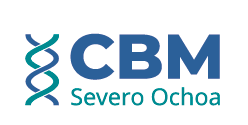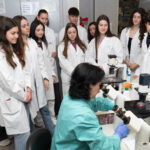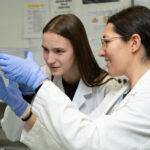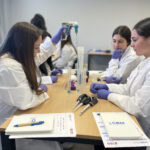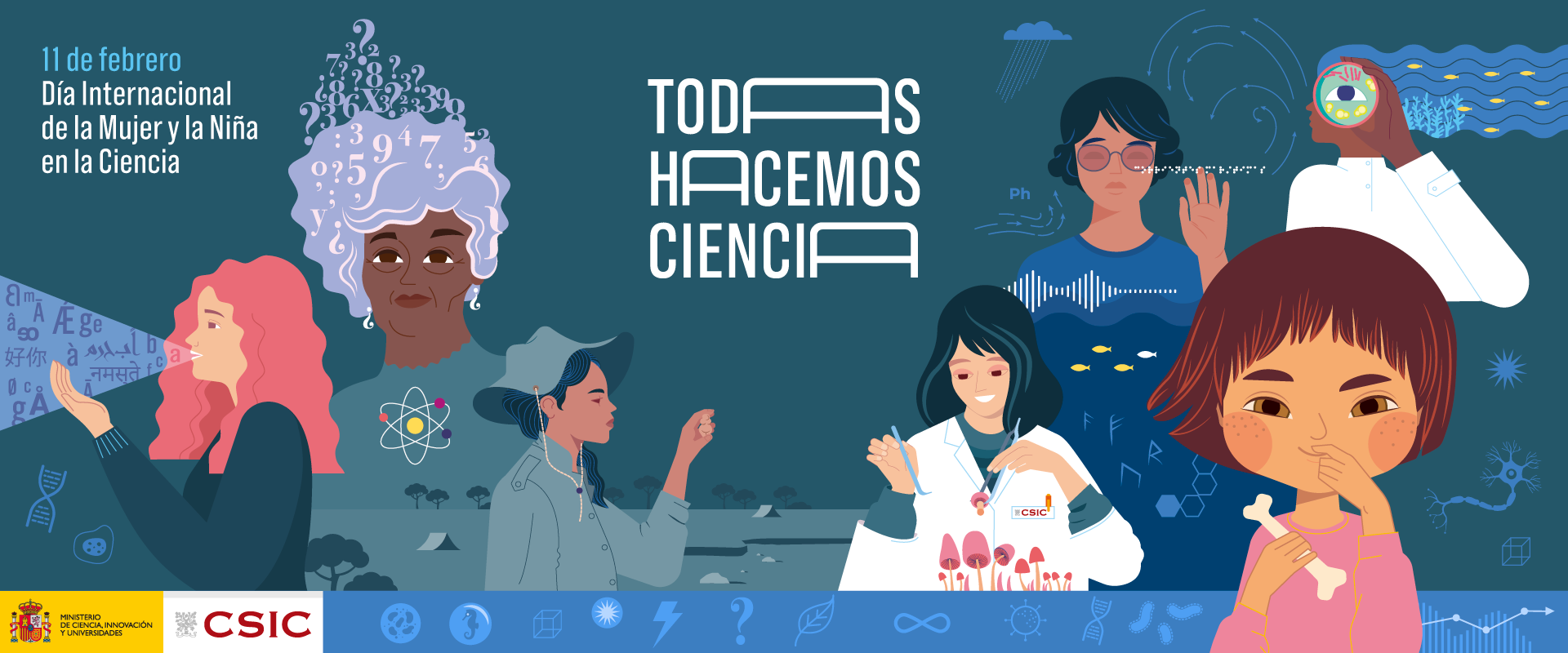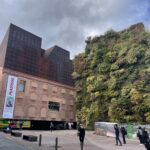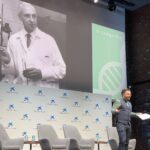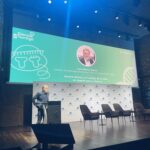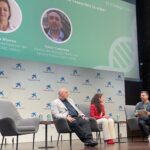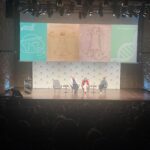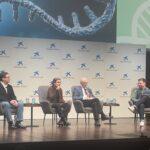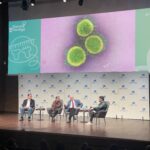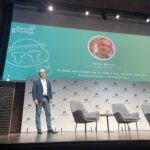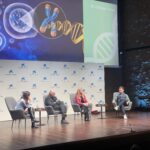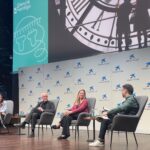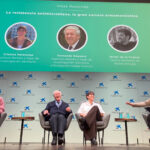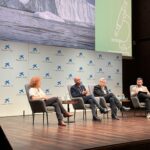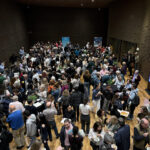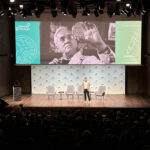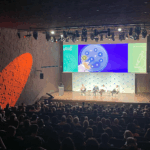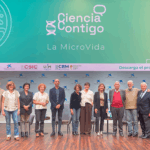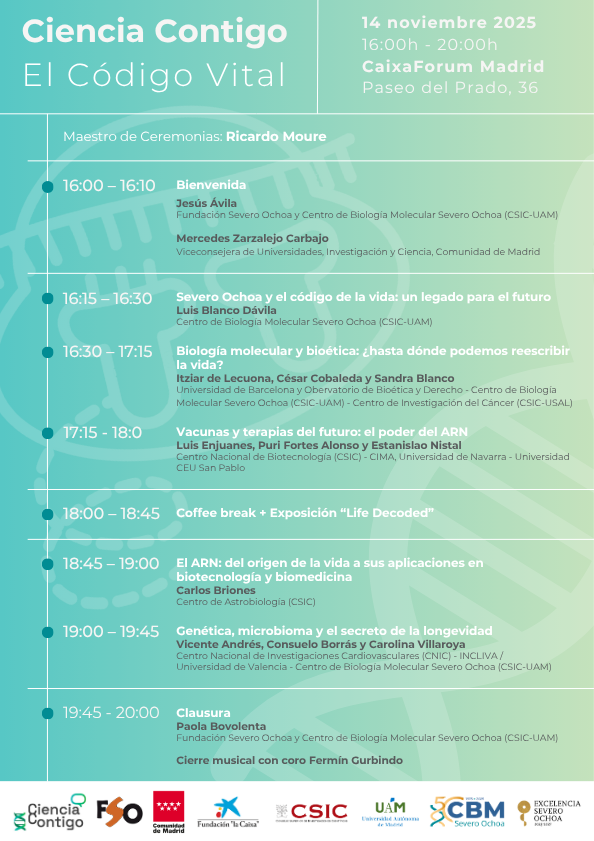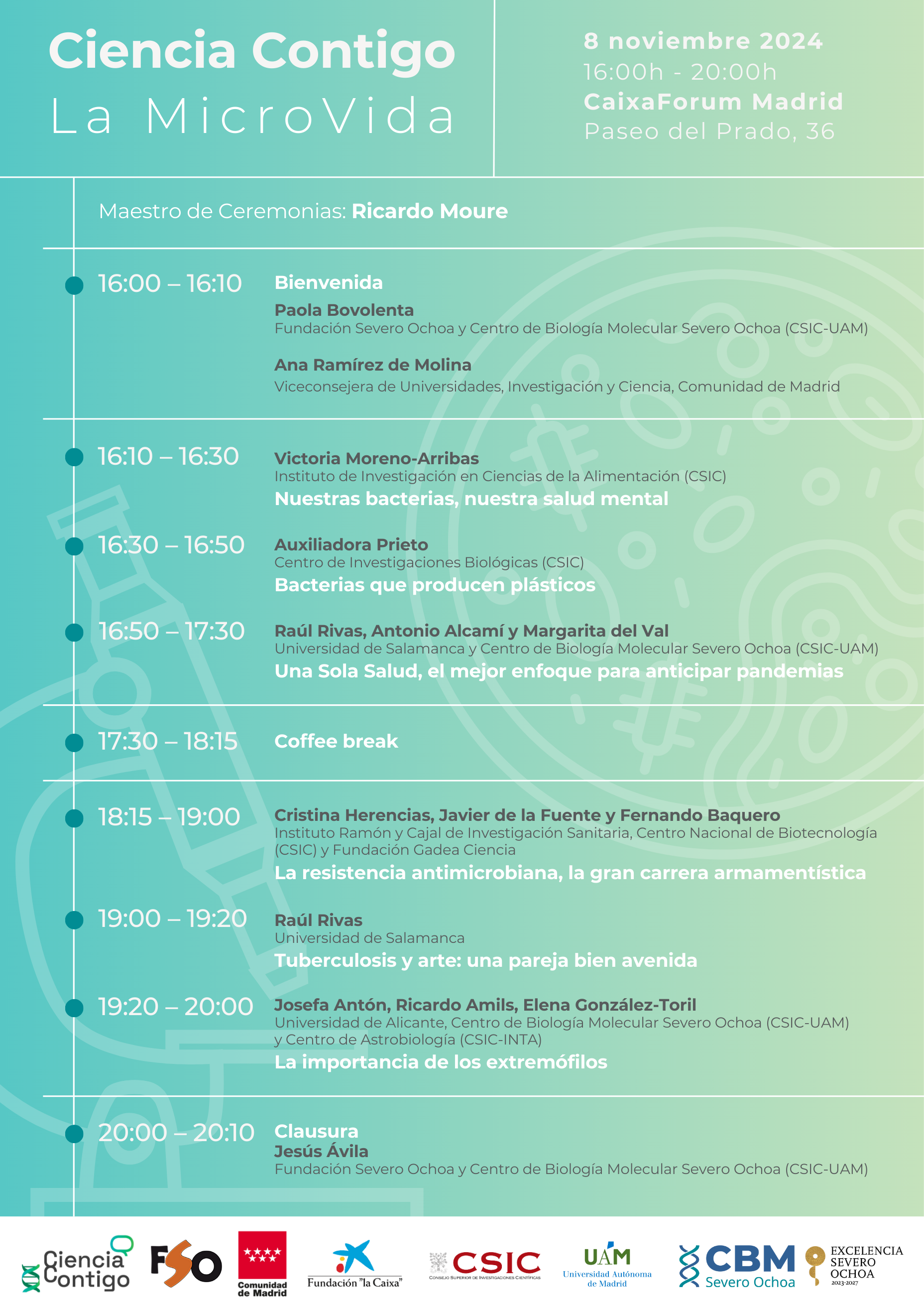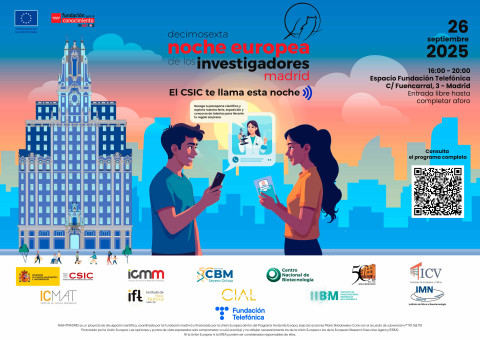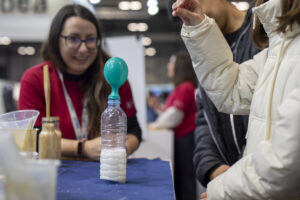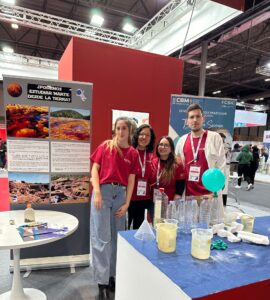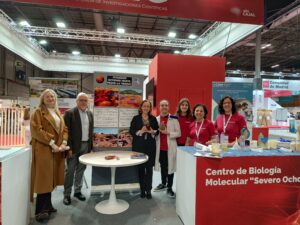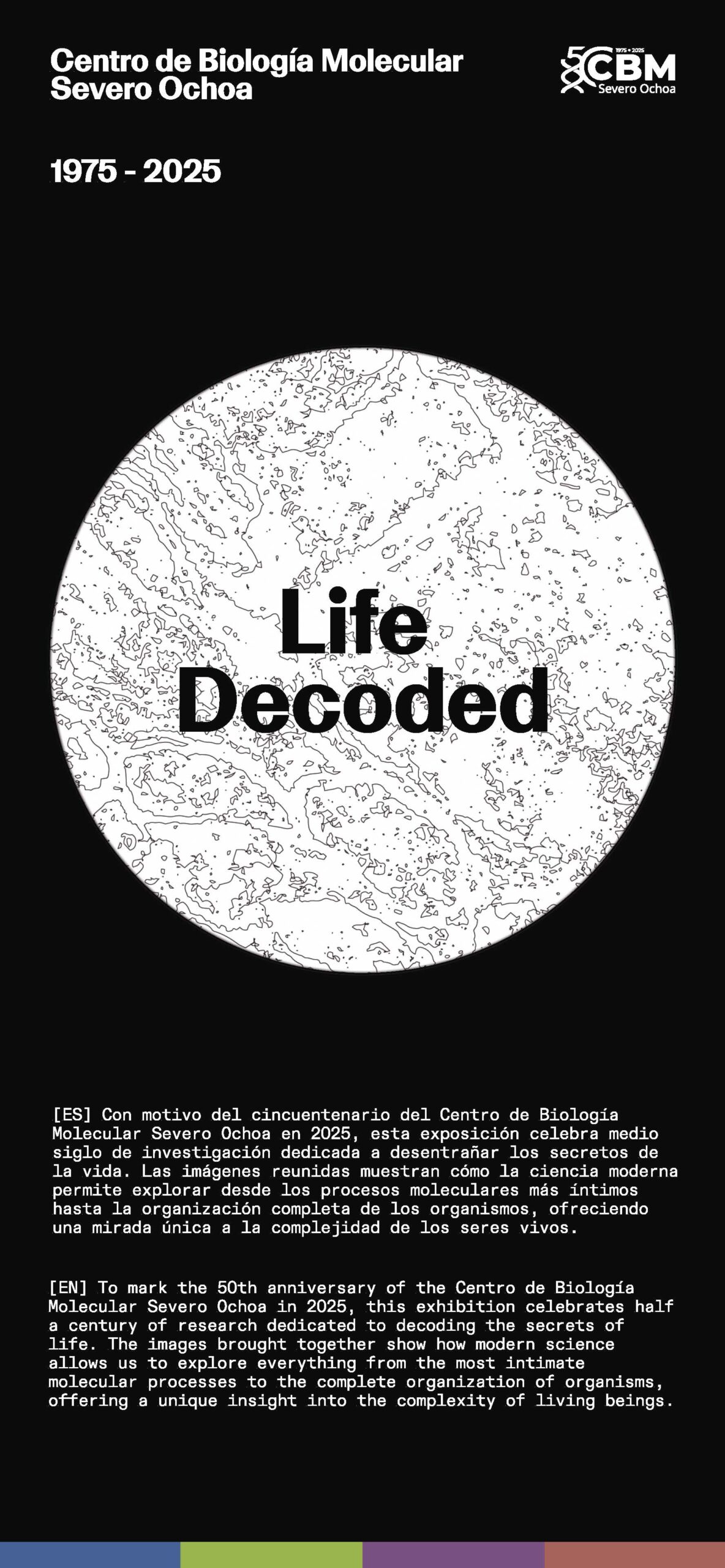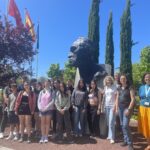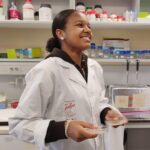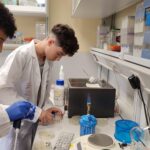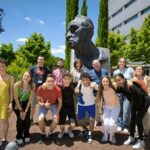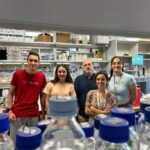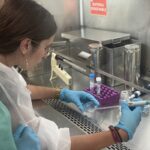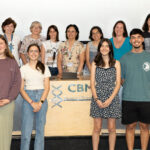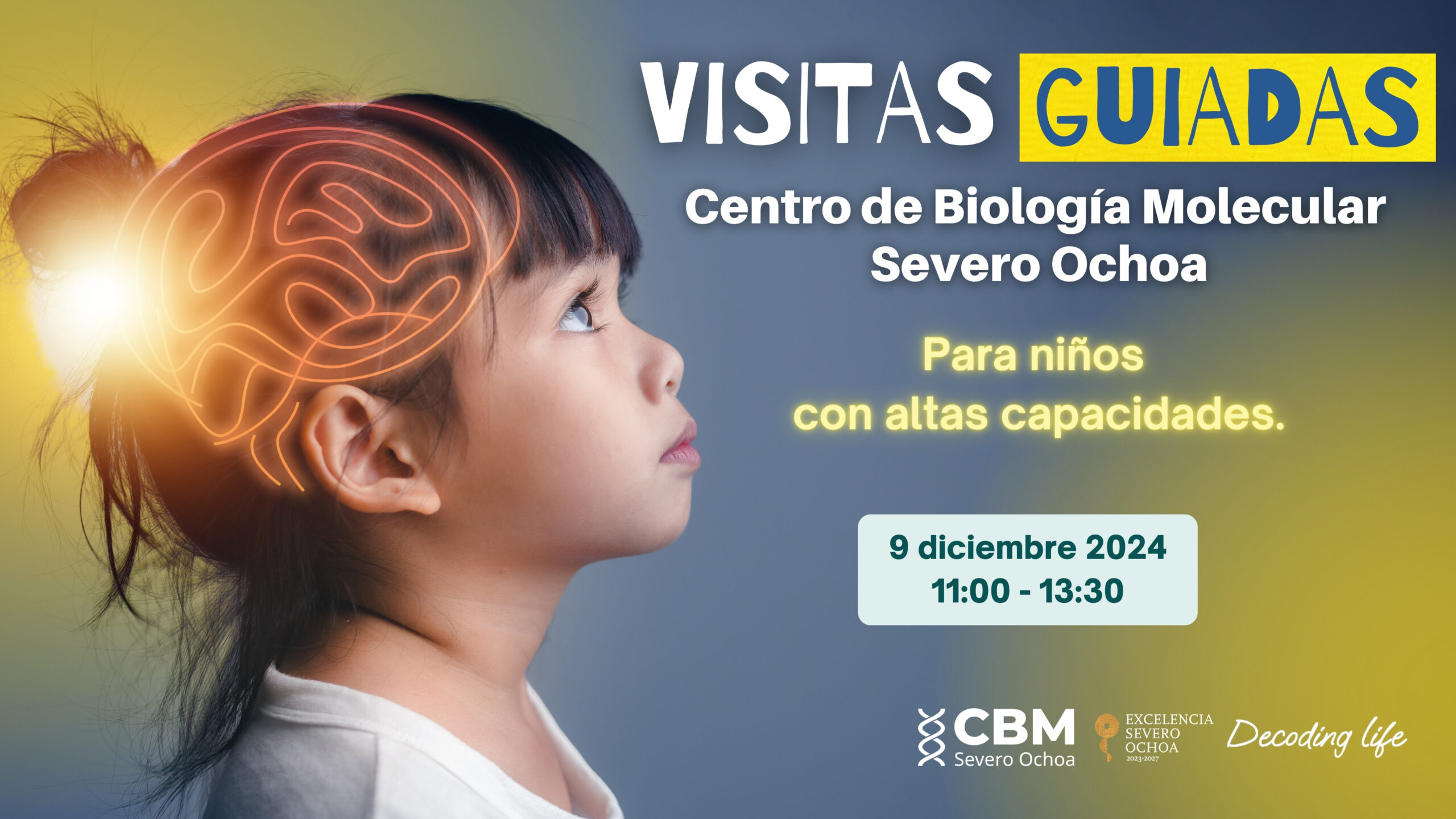Department Lead

María José Martín Pereira
Contact information
91 196 45 03
comunicacion@cbm.csic.es
Science and technology are part of our cultural heritage. Activities related to science communication and scientific dissemination are increasingly important for researchers and for society, for many reasons: they allow society to learn more about the work of researchers and the impact that science has on all fields, increase the interest and support of governments and entities that provide financial support to scientific work, and also promote scientific vocations in young people.
Our Science Dissemination and Public Engagement programmes includes participation in many activities. Among others: guided tours of the scientific and technical departments for school students – an activity that has been carried out for more than a quarter of a century and in which our Centre is a pioneer in Spain; various courses for teaching professionals; specific programmes such as the 4ºESO+Empresa programme of the Community of Madrid, or that of Finalist Students of the Spanish Biology Olympics; various activities – talks, workshops – during Science Week; participation in Science Dissemination Fairs; science dissemination seminars in Centres, Schools or Secondary Education Institutes – mainly during the celebration of Cultural Weeks. Furthermore, due to the excellence of its research and the scientific dissemination capacity of some of its members, the CBM has a long tradition of collaboration and participation in countless press, radio, television and digital media formats.
Vacio
Communications and science outreach department
The CBM Communications and Science Outreach department has the following objectives and tasks:
– Promote the national and international relevance of CBM
– Make the scientific achievements of the center visible, through the dissemination of articles, grants, scholarships, conferences, seminars, theses, etc.
– Coordinate and scale the center’s communication channels: social networks, website, etc.
– Promote the relationship with the press and other media, including through the CSIC and UAM communications departments
– Organize outreach and educational events and activities at the CBM and beyond, and inform the public about them and other news and initiatives of interest
– Facilitate and encourage the participation of our scientists in events and activities of scientific culture, both their own and in collaboration with the CSIC, the UAM and other national and international organizations.
– Promote the attraction of scientific and management talent by disseminating job offers
– Collaborate with other CSIC centers on the UAM campus and outside it, to develop activities and events
– Coordinate internal communications for CBM staff
4ºESO+Empresa program (Comunidad de Madrid)
The CBM participates in the 4ºESO+Empresa program of the Community of Madrid. During the 2024-2025 academic year, 14 secondary school students participated as part of the program itself, and another 20 as visitors to various laboratories.
The program is aimed at students in the 4th year of compulsory secondary education.
Offer for the 2025-2026 academic year
- Places available via the general program: 14
- Places available for special needs students: 6
- Deadline for applying for placements: TBC.
- Dates for placements: March 23-26, 2026 (4 days).
Internships will be carried out in the following departments:
- Protein biotechnology
- Animal facility
- Cell Culture
- Experimental Genomics
- Biocomputational analysis
- Proteomics
- Advanced optical microscopy
- Electron microscopy
- Flow cytometry
How to apply
The application form must be submitted exclusively by the educational centre. Neither students nor parents may apply.
Each school must send only one form, as only one student per school will be accepted (if more than one application is sent, none will be considered).
Application dates are not available yet for the 2025-26 academic year. Application forms usually open in January each year. Please visit this page again for updates.
More information
Programme website: https://www.educa2.madrid.org/web/4eso-empresa
General info: https://www.comunidad.madrid/servicios/educacion/programa-4o-esoempresa
Guided tours for schools
The guided visits to the Severo Ochoa Molecular Biology Centre offer a unique opportunity to get to know closely one of the main scientific research institutes in Spain, founded in 1975 by Nobel prize winner Severo Ochoa on the campus of the Autonomous University of Madrid. We have more than 90 leading research groups in various fields of biomedicine, supported by 20 high-quality scientific-technical services.
How do the visits work?
We offer these guided tours completely free of charge, once a month during the academic year, with a stop in December (October to May). The maximum number of participants we can accommodate on each visit is 30 people, due to the characteristics of our facilities and for safety reasons. During the guided visit, students will be able to tour the centre’s modern facilities, including state-of-the-art laboratories, scientific services, specialised research areas and collaborative workspaces. Scientists from the centre will explain their most outstanding projects in areas such as genetics, microbiology, and neuroscience, showing first-hand how their research contributes to the advancement of scientific knowledge and also how they have come to work in a centre like ours. They will also answer any questions the students may have.
The visits take place in the morning, with the following format:
– Introductory talk to the CBM.
– Visit to a laboratory: in small groups of a maximum of 10 people. Each group will be guided by a member of the laboratory they are visiting.
– Visit to a scientific service: the guide of each group will take the students to the scientific-technical service with which their laboratory collaborates the most, where they will learn about its main characteristics and functions.
How do I apply for a place?
Schools wishing to apply for one of our guided tours can do so using this form.
The form is open from September 15 to September 30, 2025, inclusive. Once the applications have been received, the selected educational centres will be contacted and offered a date for the visit, which they must confirm.
The guided tours are aimed at students in their second year of high school (science and technology) or vocational training (science or biomedicine fields).
11F: International Day of Women and Girls in Science
To mark International Day of Women and Girls in Science (February 11), the Centro de Biología Molecular Severo Ochoa is once again joining in the celebrations with an extensive program of educational activities. During the week of February 9-13, 2026, CBM research staff will participate in workshops, talks, scientific demonstrations, and meetings with students of different educational levels, both in schools and in public spaces, as well as online. These initiatives aim to bring science closer to young people, awaken scientific vocations, and highlight the fundamental role of women in research. Below is a list of all the activities organized by or involving the CBM around February 11.
See the whole list of activities.
Ciencia Contigo
Ciencia Contigo is a science outreach event for all audiences organized annually by the Severo Ochoa Foundation (FSO), with the support of the Community of Madrid and the Centro de Biología Molecular Severo Ochoa (CBM). The FSO Board of Trustees includes CBM researchers such as Federico Mayor Menéndez and Jesús Ávila, among others, and its secretary is Paola Bovolenta, Director of the CBM. These events have very complete programs with presentations and roundtables by leading speakers in research and outreach in the areas covered. Ricardo Moure is the master of ceremonies for these events.
The first and second editions were held at the Residencia de Estudiantes (CSIC campus), and the third and fourth at the CaixaForum (Paseo del Prado), with a great reception by the Madrid public. In November 2025, we celebrated the fourth edition of the Ciencia Contigo event, the focus of this year being The Vital Code or El Código Vital, in reference to the discoveries made by Severo Ochoa on the 50th anniversary of the CBM. Topics discussed included the genetic code and Ochoa’s scientific legacy, and everything RNA-related: from the origin of life to new therapies and even its impact on longevity.
In 2024, the theme of the event was ‘The MicroLife’ and the presentations focused on the importance of microorganisms (bacteria, viruses, etc.) and their impact on various areas of our daily life, society and technology. The event included several speakers in different formats: short talks and round tables of three speakers each.
The speakers were experts in topics as diverse and interesting for the public as the antimicrobial resistance crisis, emerging viruses, the functioning of our immune system, the effects of our microbiome on mental health, the possible characteristics of life outside the earth or the use of microorganisms in biotechnology. These experts came from various CSIC resesarch centers and other research centers in Spain.
In 2023 and 2025, the Ciencia Contigo events were accompanied by science+art exhibitions. In 2023, and marking the Cajal Year, the exhibition featured pairs of images: one a selected Cajal drawing and the other an experimental image related to the drawing. The experimental images were submitted by scientists from all over Spain and Europe. In 2025, the event featured the Life Decoded exhibition, created to celebrate the CBM’s 50th anniversary and including experimental images from our labs and microscopy facilities.
Download the complete program of Ciencia Contigo 2025 – El Código Vital.
Download the complete program of Ciencia Contigo 2024 – La MicroVida.
Catalogue of scientific conferences for schools
CATALOGUE OF CSIC SCIENTIFIC CONFERENCES AIMED AT THE EDUCATION SYSTEM AND OTHER ORGANISATIONS IN THE COMMUNITY OF MADRID
This catalogue includes proposals for informative talks by CBM researchers. Educational institutions (or any other group) interested in the offer of activities can select and request those lectures that are suitable to complement the contents of their syllabus, or to encourage scientific dissemination in schools.
Access the catalogue (CSIC Delegation in the Community of Madrid)
Science Week
Science Week 2025
Our outreach activities as part of Science Week 2025 include: in-person and online talks, interactive workshops for primary and secondary school students, and an open house at the CBM for educational centres. This year, we have partnered with the Jovenes Nucleares association of physics students for some of these activities.
All information and reservations can be found on the CSIC Science Week website.
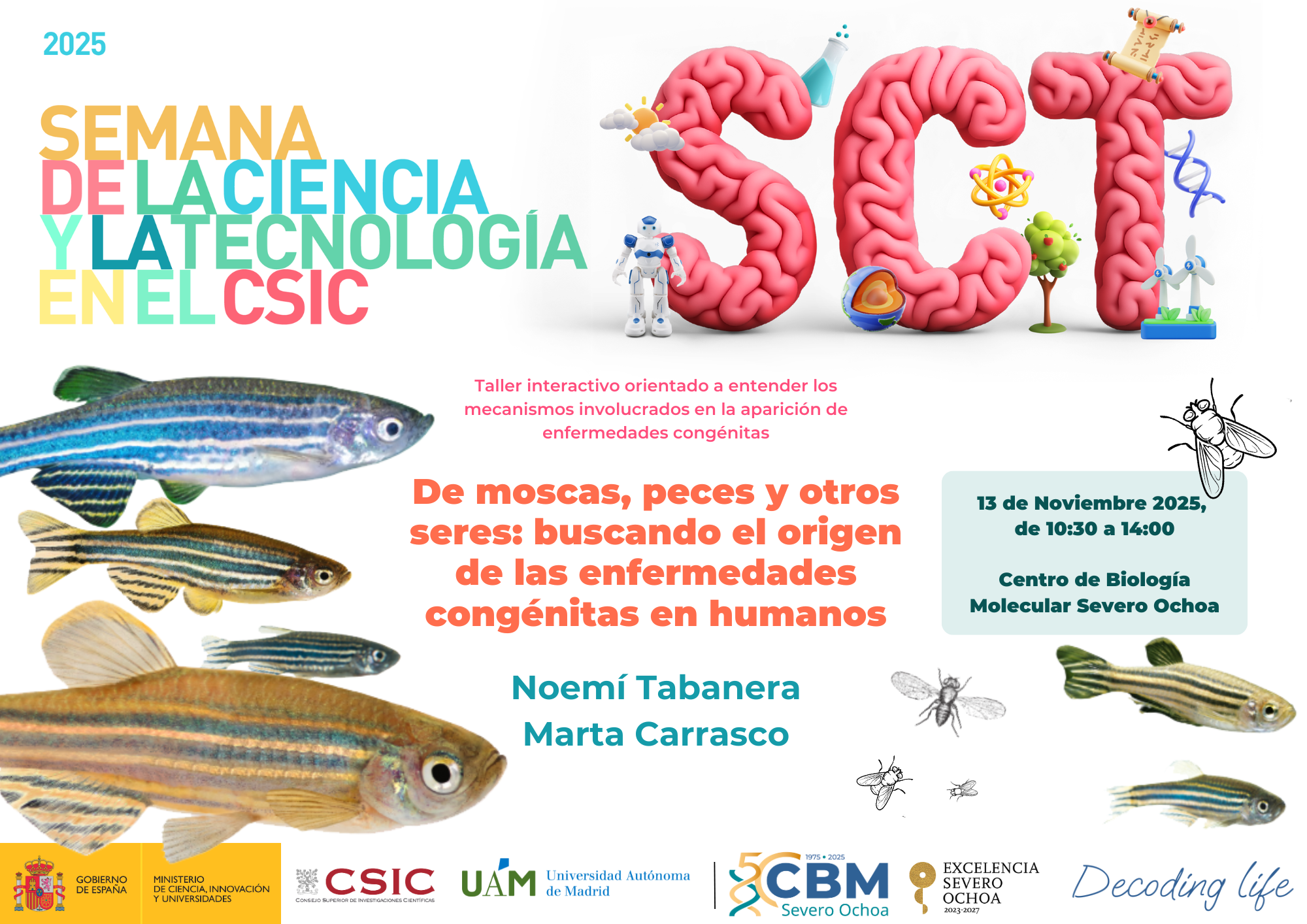 |
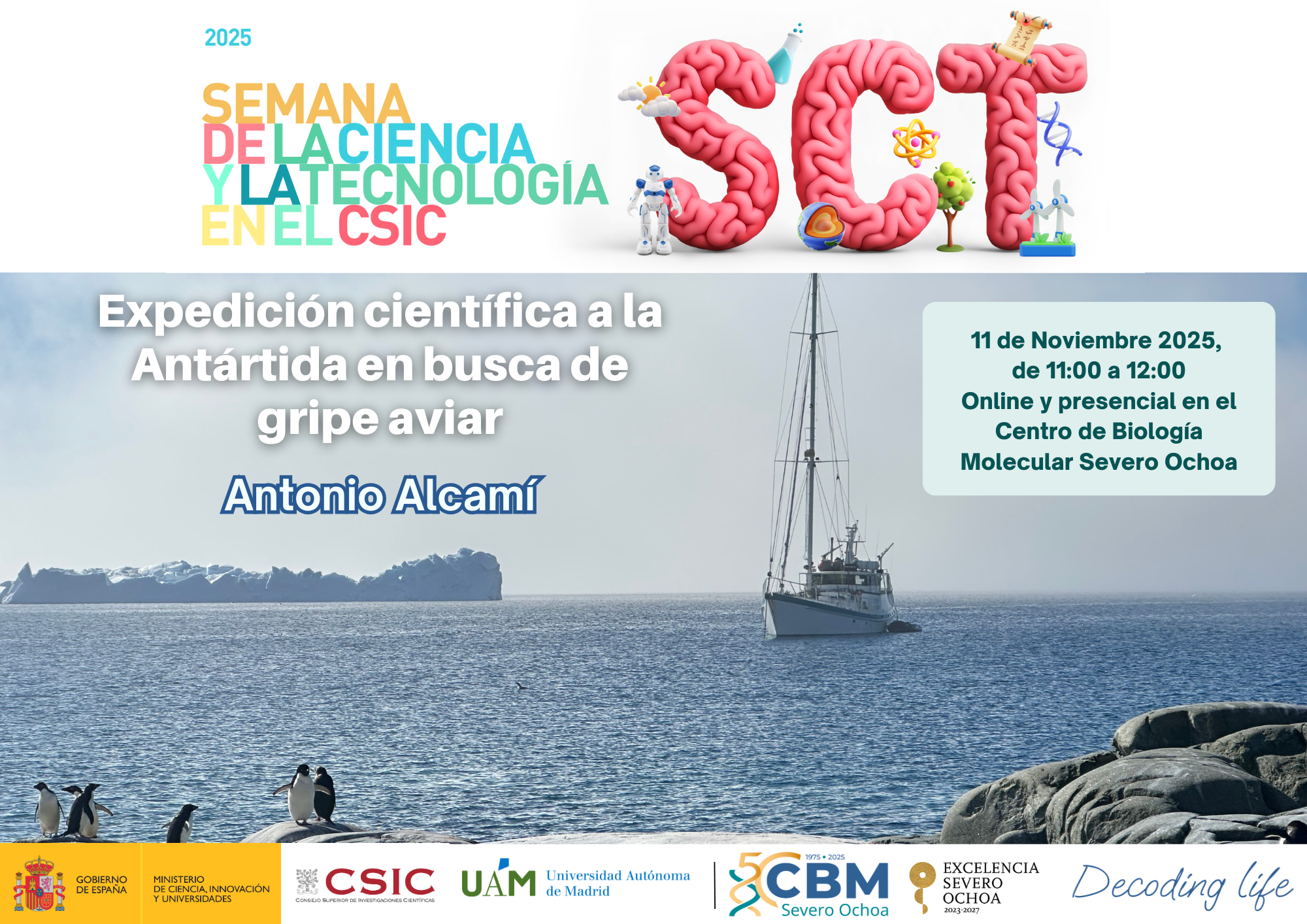 |
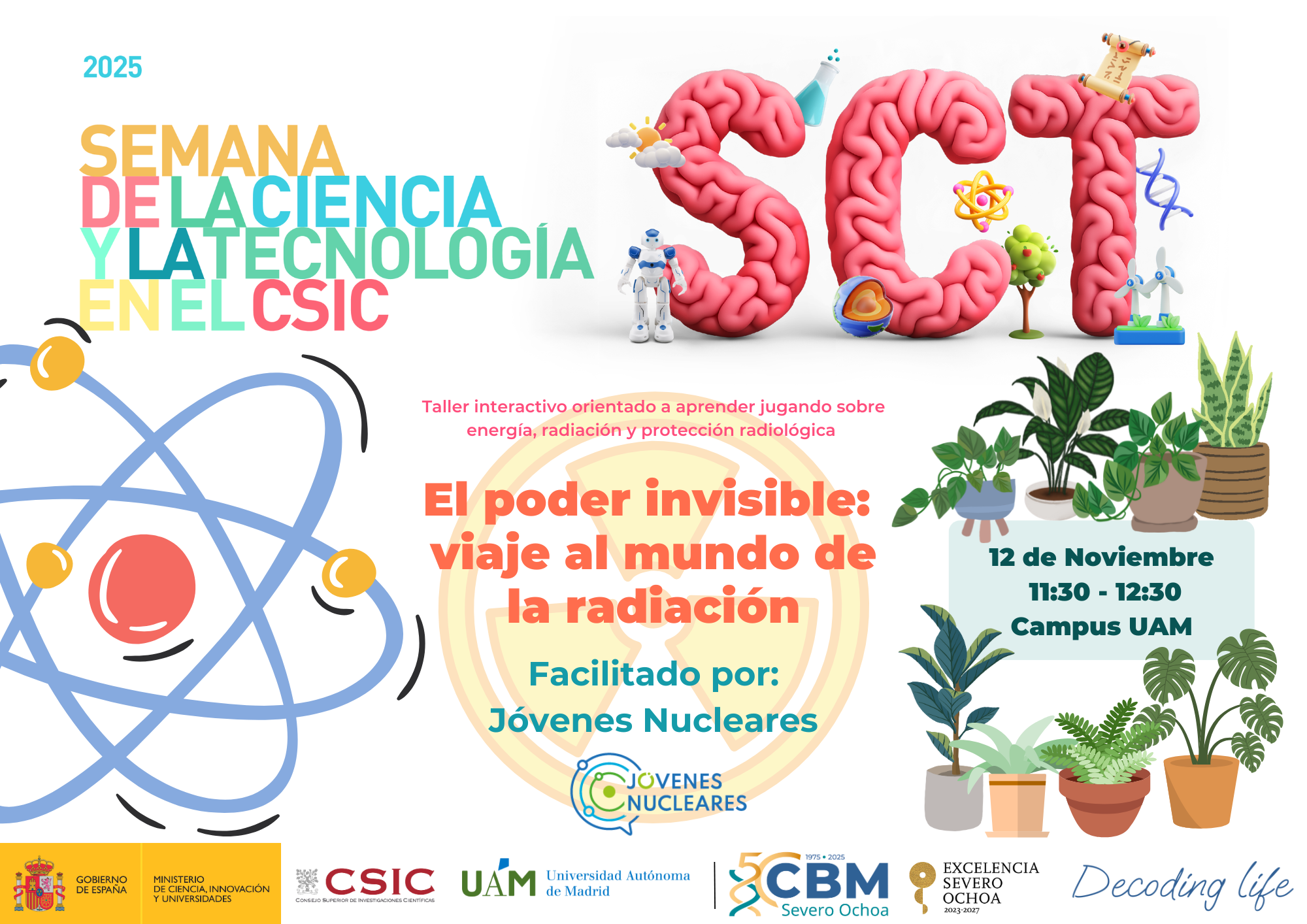 |
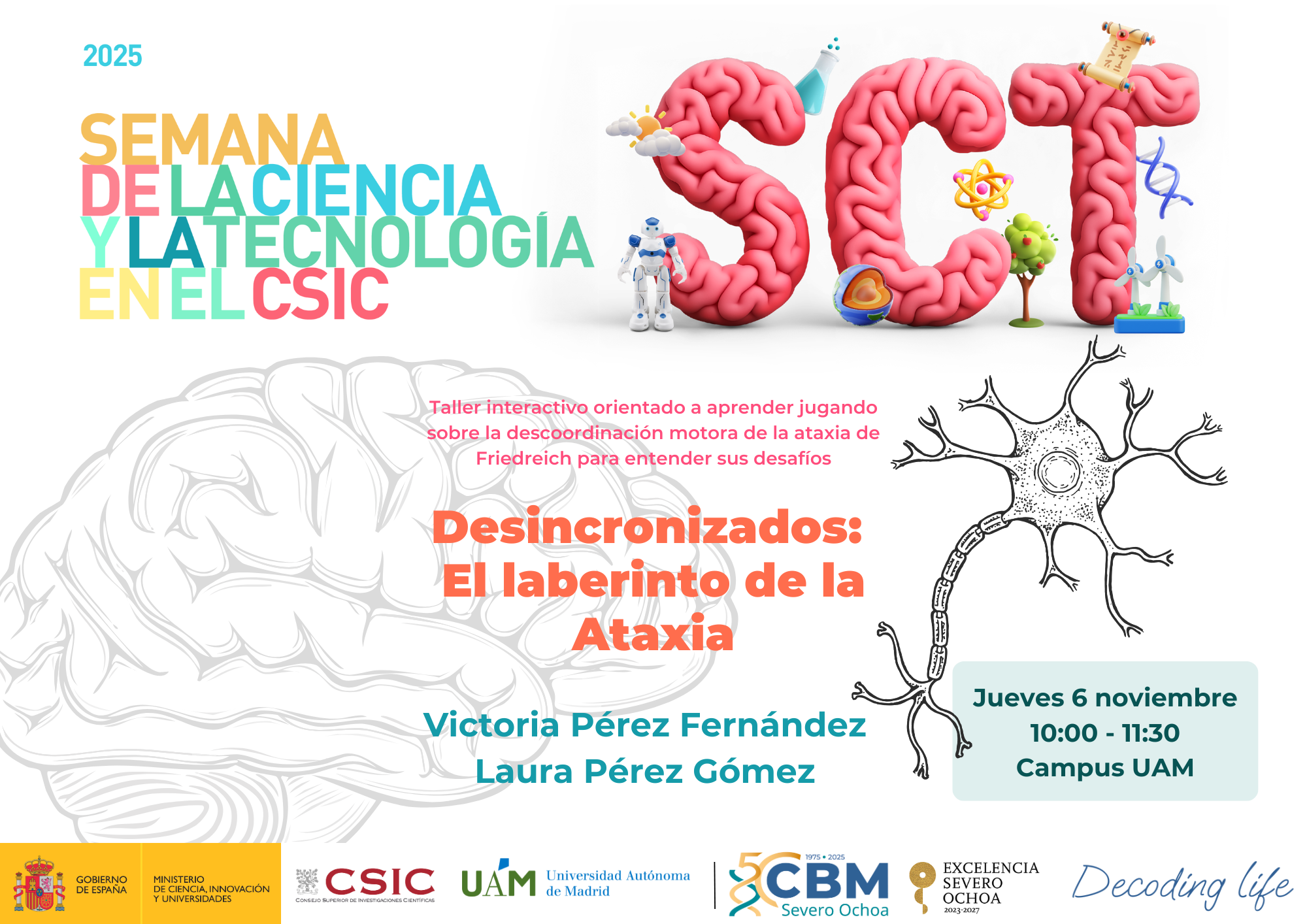 |
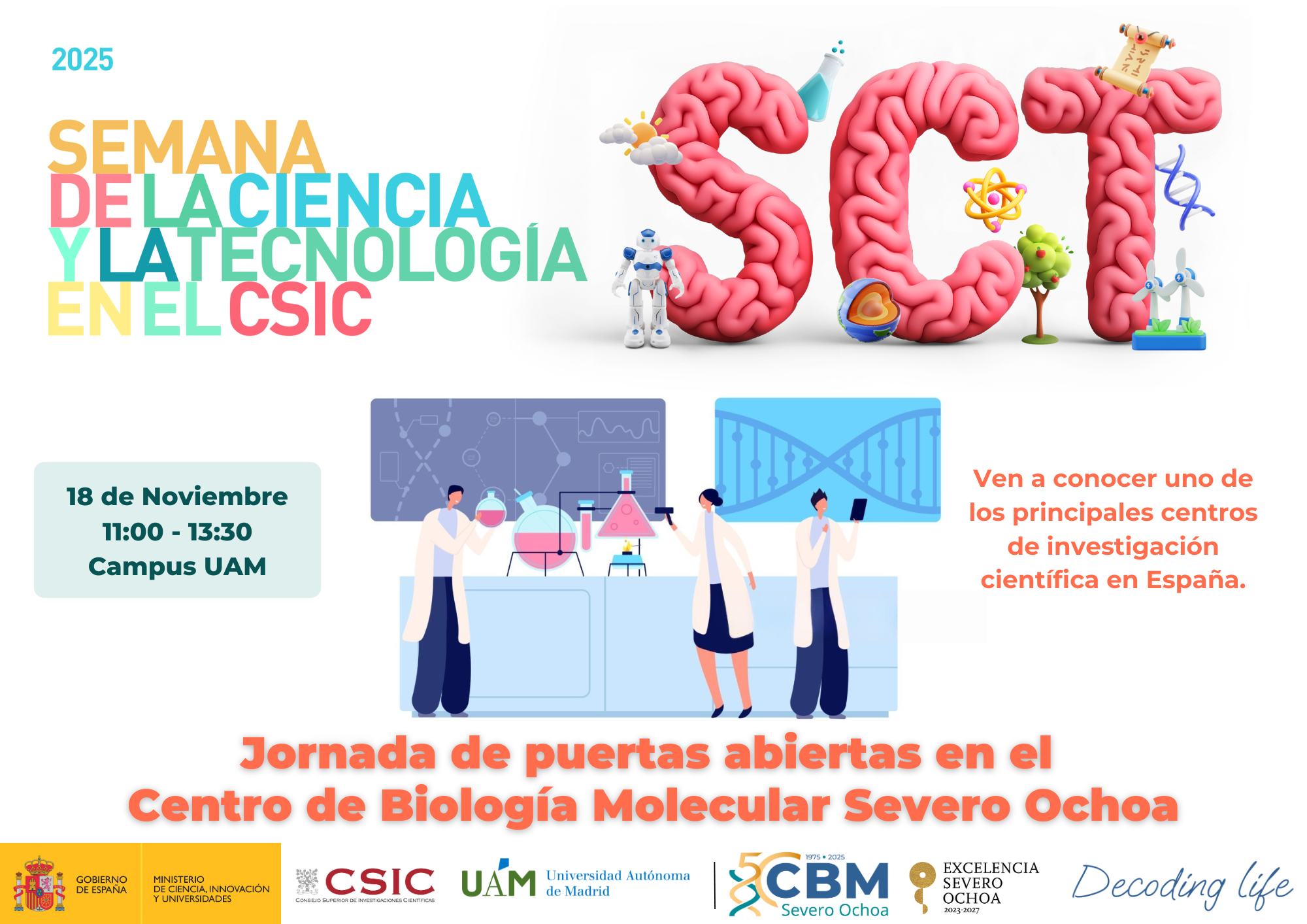 |
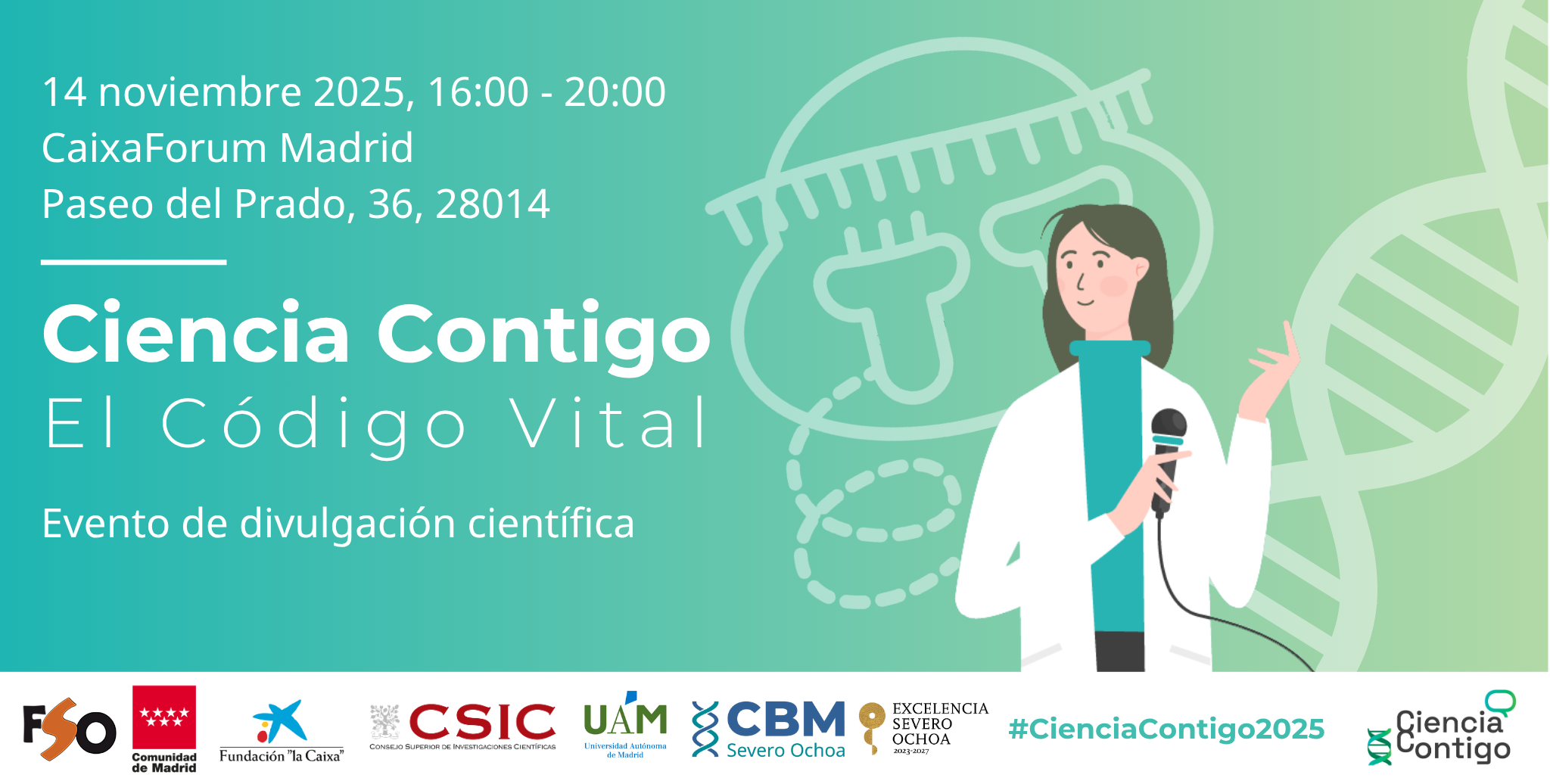 |
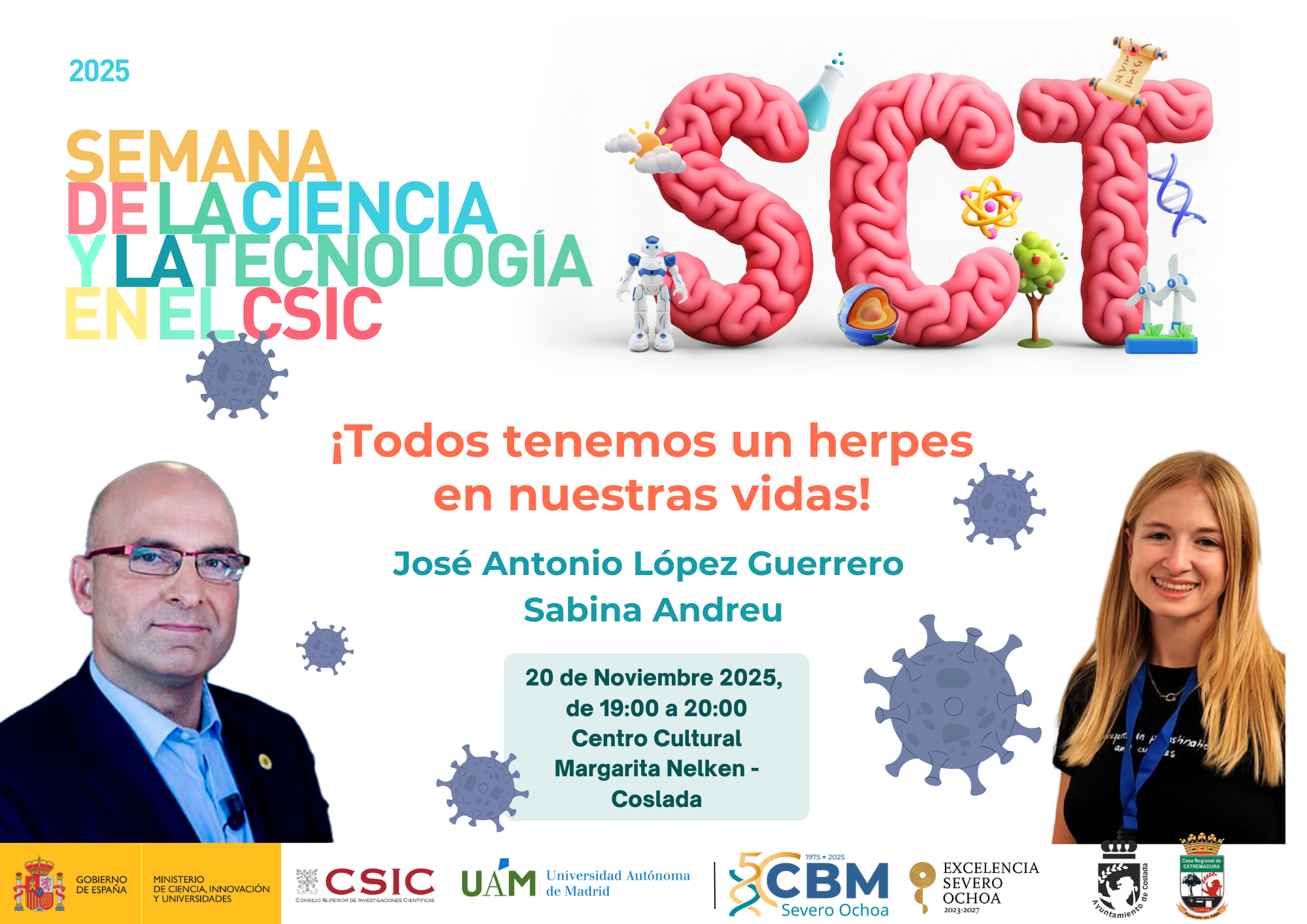 |
Science Week 2024
Our outreach activities as part of Science Week 2024 include: in-person and online talks, an interactive workshop, and an open house at the CBM for educational centers.
All information and reservations can be found on the CSIC Science Week website.
 |
 |
 |
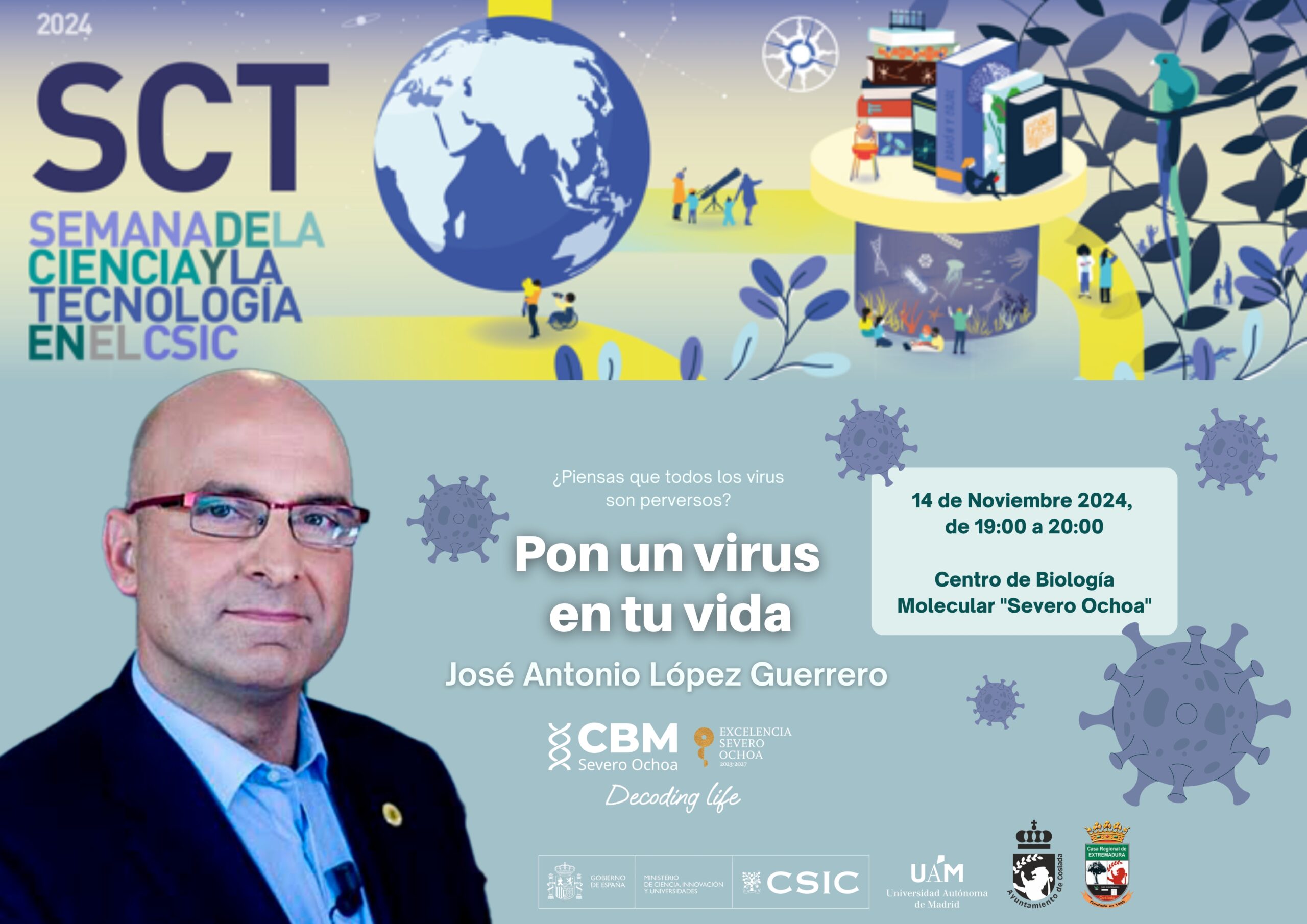 |
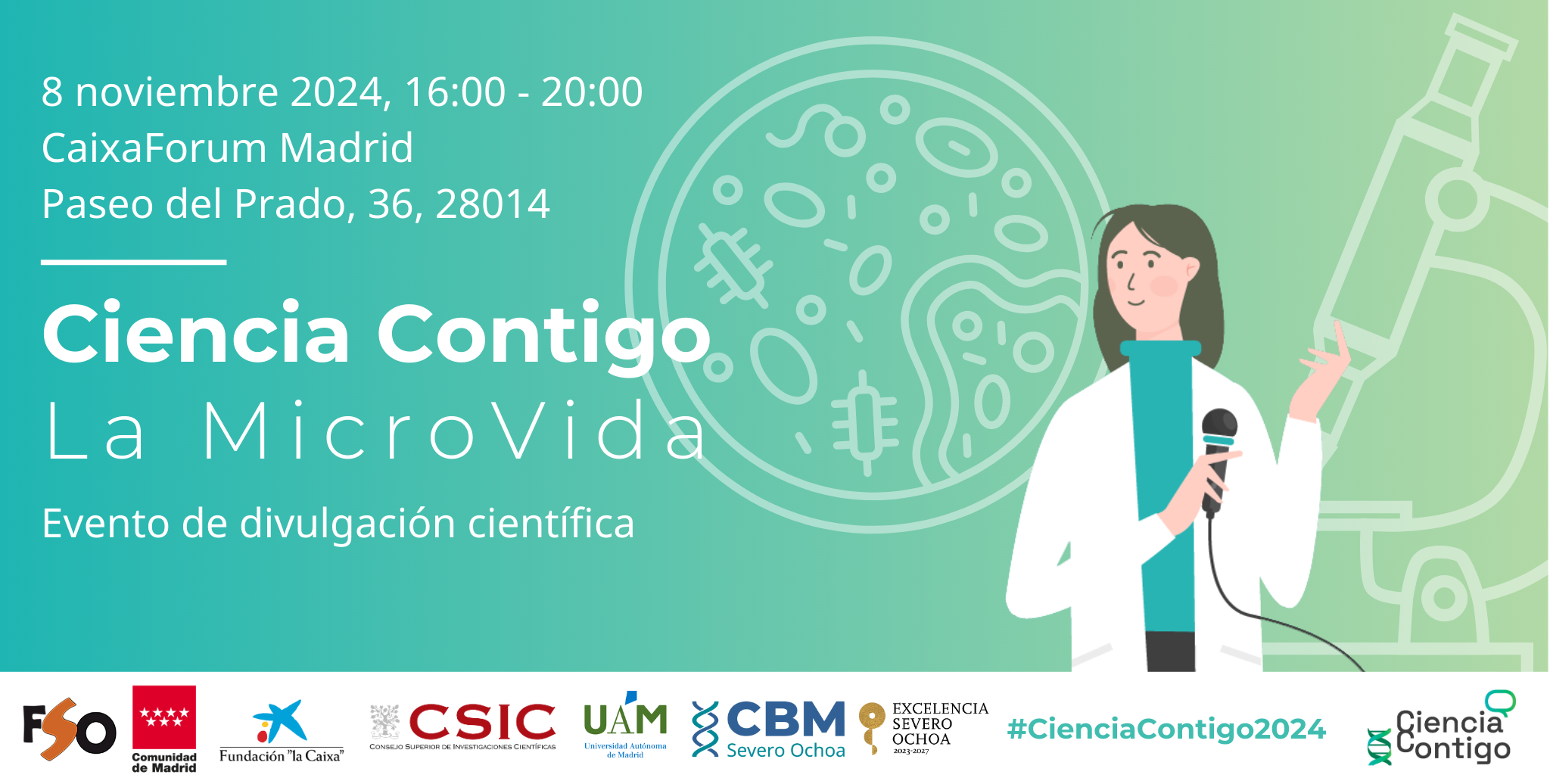 |
Semana de la Ciencia 2023
 |
 |
 |
European Researchers' Night
‘The CSIC is calling you tonight’: European Researchers Night 2025
‘The CSIC is calling you tonight’: European Researchers Night 2024
We are bringing the best science to the streets in a massive event that will take place at Espacio Fundación Telefónica. European Researchers’ Night 2024 will be held on Friday, September 27, in the heart of Madrid. Here is all the information you need.
Morning: science fair for elementary, middle, and high school students
From 11 a.m. to 1:30 p.m., we will hold a large science fair at Espacio Fundación Telefónica: we will have our famous ‘Science Cart’, explore the secrets of glass and ceramics, discover the surprising superconductivity, play with catalysts, hydrogen batteries, and the periodic table, and test the antioxidant power of fruit with our own hands.
Of course, our Escape Road will be there too: in search of Nobel and non-Nobel women. In this treasure hunt, students will have fun playing while learning the names, work, and history of great female scientists from around the world.
In the afternoon: activities for all ages, and a scientific monologue contest!
From 5 p.m. to 8 p.m., we will open the doors of our science fair at Espacio Fundación Telefónica to welcome anyone who wants to come and learn about the science we do at the CSIC in the most entertaining way possible. We will have stands where you can walk around, seeing and experimenting with our research staff to learn everything we have to tell you. In addition, we will schedule closed-door workshops with set times and limited capacity to train our X-ray vision, extract DNA, research plant biotechnology, learn about the properties of algae as an alternative food source, and test the antioxidant power of fruit.
This year, as a new feature, we will have a hilarious scientific monologue contest: at 5 p.m., we will open the doors for the first edition of this scientific joke contest in which, as in any good experiment… we don’t know what might happen. The first session will be at 5:30 p.m. and the second at 7 p.m. Each edition will have different contestants: staff from the ten CSIC centers will battle it out, and only one person (or team) can win in each time slot: Who can explain science in the most entertaining way? The audience will decide using the infallible “applause meter” method. There will be laughter and, most likely, tears (of laughter).
About us
Activity organized by the CSIC centers on the Cantoblanco Campus of the Autonomous University of Madrid: Madrid Institute of Materials Science (ICMM) (coordinator), Institute of Catalysis and Petrochemistry (ICP), National Center for Biotechnology (CNB), Institute of Food Science Research (CIAL), Institute of Ceramics and Glass (ICV), Institute of Mathematical Sciences (ICMAT), Institute of Theoretical Physics (IFT), Institute of Micro and Nanotechnology (IMN), Center for Molecular Biology (CBM), Sols-Morreale Institute for Biomedical Research (IIBM).
NIGHTMADRID is a scientific outreach project coordinated by the madri+d Foundation and funded by the European Union under the Horizon Europe Program, under the Marie Skłodowska-Curie Actions with grant agreement No. 101.162.110.
"Madrid is Science" fair
The CBM participates in the “Madrid es Ciencia” fair, held at IFEMA and organised by the Community of Madrid. As part of the CSIC institutional stand, the centre offers demonstrations aimed at students and the general public to bring biomedical research closer to society.
The activities prepared by our early career researchers include topics in neuroscience, such as how neurons and the brain work; microbiology, with the observation of microorganisms and their role in health; astrobiology, exploring the search for life on other planets and the role of extremophilic bacteria; and biotechnology, with simple experiments showing how antibiotics are produced.
In 2026, the dates for the fair are 19-21 March, and you can find more info on this website.
"Life decoded" exhibition
At the CBM, what is born in the laboratory is capable of transcending its technical function to be reinterpreted in an aesthetic dimension. This exhibition invites visitors to discover the territory shared by science and its intrinsic beauty.
Each photograph and micrograph is the result of technical mastery that allows us to approach life on different scales. Complex processes that, when captured, reveal the harmony of cells, the rhythm of tissues, and the elegance of molecular mechanisms.
The journey is therefore twofold. On the one hand, it is a map of the scientific work that has defined the CBM’s excellence for fifty years; on the other, it is a sensory journey that awakens curiosity and wonder. At this intersection of perspectives, the invisible becomes tangible and the technical is transformed into an aesthetic experience.
The centre’s motto, Decoding life, gives the exhibition its title and sums up its mission: to understand life in all its complexity. This phrase pays tribute to Severo Ochoa, founder of the CBM, and continues to guide the institution’s creativity and scientific excellence.
The collaboration with Luis Fernández Codeseda in Life decoded reinforces this dialogue between science and creation. An industrial designer trained at the Madrid School of Design and a member of DIMAD, his career combines product design, visual communication, and formal experimentation. His most notable pieces include the Giraffi lamp, inspired by the morphology of a giraffe and conceived as a light sculpture; the contemporary TOMÉ jug, which reinterprets tradition through ceramics; and the Arquilla modular storage system, where the act of storing becomes an exhibition gesture.
His ability to translate abstract concepts into tangible objects connects naturally with the CBM’s philosophy: deciphering the invisible, giving shape to the complex, and proposing new ways of looking at life. In this exhibition, his gaze amplifies ours, transforming scientific research into a shared aesthetic experience.
Exhibition catalog
The digital catalogue of Life decoded features the ten pieces that make up the exhibition, scientific images from the CBM laboratories printed on methacrylate discs that evoke the experience of looking through a microscope eyepiece. Each work is presented on tubular metal supports inspired by standard laboratory equipment—structures used in techniques such as chromatography or protein purification—emphasising the link between scientific practice and artistic staging. Even the labels are integrated into this language, attached with laboratory clamps, as if they were flasks or test tubes, reinforcing the idea that art is born directly from scientific practice.
Científic@s en prácticas program
“Científic@s en prácticas” (‘Scientists in practice’) is a science outreach programme that offers one-week stays in research laboratories for young people in the 3rd year of ESO and 2nd year of PMAR, who come from disadvantaged backgrounds and stand out for their interest and academic effort.
This project, promoted and coordinated by the CSIC, is directed by the researcher Jesús Rey, from the Institute of Philosophy, with the support of the Spanish Association for the Advancement of Science (AEAC) and the Outreach Unit of the Centre for Human and Social Sciences, to promote scientific vocations among young people from vulnerable areas.
The CBM has been a host to students of this program for several years. In 2025, students were hosted by three of our research groups led by María Gómez Vicentefranqueira, Miguel Manzanares and Natalia Azpiazu.
The programme has the backing of the Health Network for Social Responsibility and Sustainability, as well as the support of private foundations such as the Talgo Foundation and the Pelayo Foundation.
In addition to the internships, ‘Científic@s en prácticas’ includes visits to research centres for all students, as well as presentations by researchers at secondary schools. In total, some twenty visits have been carried out in both directions. Outreach videos about the participating laboratories are also being produced in collaboration with trainees through an agreement with UCM, who receive training in scientific audiovisual communication.
In the long term, the programme aims to extend progressively throughout the country and to provide support for students to continue their scientific studies.
For more information, the programme has its own website.
Spanish Biology Olympics
The CBM collaborates with the organisers of the Spanish Biology Olympiad. After the regional phases, the selected 6 students carry out a 5-day internship in our laboratories, engaging in scientific activities related to molecular biology and biotechnology. This initiative reflects our strong commitment to science outreach and support for young scientific talent.
Science with Chocolate
Science with Chocolate is an informative programme of talks, originally accompanied by chocolate, and now accompanied by a drink with friends at the Moe Club. Organised by Enrique de la Rosa and Margarita del Val, and supported by the Centro de Investigaciones Biológicas Margarita Salas, the Centro de Biología Molecular Severo Ochoa, the Spanish Association of Scientists, the DRO Foundation, the Spanish Society of Immunology and the Royal Spanish Society of Chemistry.
More information: Science with chocolate.
Severo Ochoa Week
The Severo Ochoa Week is organised by the Royal Academy of Medicine of Spain in collaboration with the Carmen and Severo Ochoa Foundation, the University of Nebrija and the Spanish Society of Biochemistry and Molecular Biology (SEBBM). It takes place during the first week of November each year, and 2025 marks its second year.
Continuing with the initiative that began in 2024 to honor Spanish scientific figures, the Royal National Academy of Medicine of Spain (RANME), together with Nebrija University and the Carmen and Severo Ocho Foundation, are organizing this edition with the collaboration of the Spanish Society of Biochemistry and Molecular Biology (SEBBM) and the Severo Ochoa Molecular Biology Center (CBM), which is contributing with presentations and open house events.
November 3, 2025. Opening ceremony of the 2nd Severo Ochoa Week
Institutional speeches: Prof. Eduardo Díaz-Rubio (RANME), Mr Manuel Villa-Cellino (Nebrija University), and Dr. Regina Revilla (Carmen and Severo Ochoa Foundation)
November 4, 2025. Severo Ochoa Academic Scientific Session
“The role of genistein in prodromal Alzheimer’s disease” Prof. José Viña Ribes, Full Member of the Royal Academy of Medicine of the Community of Valencia
“SGLT2 inhibitors: a therapeutic revolution” Prof. Juan Tamargo Menéndez, Corresponding Member of the RANME
November 5, 2025. Presentation of the biography “Severo Ochoa. A life for science”
Welcome: Prof. Jesús Fernández-Tresguerres (Full Member of the Royal National Academy of Medicine of Spain)
Institutional Speeches: Eva Ortega Paíno (Secretary General for Research at the Ministry of Science, Innovation, and Universities), Pura Fernández Rodríguez (Director of the CSIC publishing house), Santiago Sierra González del Castillo, Deputy Director of Cultural and Scientific Relations and Cultural Promotion at AECID, Dr. Antonio Ferrer-Montiel (President of the Spanish Society of Biochemistry and Molecular Biology), Prof. César Nombela Arrieta (Vice President of the Carmen and Severo Ochoa Foundation)
Book presentation: Prof. José Manuel Sánchez Ron (Coordinator)
November 5, 2025. Open classroom
Centers linked to the figure of Severo Ochoa
Invited centers:
Centro de Biología Molecular Severo Ochoa, on the 50th anniversary of its creation.
Jiménez Díaz Foundation University Hospital, on the 90th anniversary of the Institute of Medical Research and the 70th anniversary of the Concepción Clinic.
November 6, 2025. Second continuous reading of the selected work by Severo Ochoa
November 6, 2025. Institutional event of the Carmen and Severo Ochoa Foundation
Coordinated by Dr. Regina Revilla, President of the Carmen and Severo Ochoa Foundation
30th Carmen and Severo Ochoa Award for Research in Molecular Biology to Professor Juan Valcárcel of the CRG.
30th Severo Ochoa Commemorative Lecture by Dr. Witold Filipowicz.
Download the II Severo Ochoa week programme.
During the I Severo Ochoa Week in 2024, the Carmen and Severo Ochoa Foundation will award its yearly prize to our researcher, María Llorens. The award ceremony included a conference by CNIO Director and former recipient of this award, María Blasco.
Download the full programme for the I Severo Ochoa week.
Download the award and conference poster.
More information about the I Severo Ochoa Week is on the SEBBM website.
Activities for intellectually gifted people
Intellectual giftedness is an intellectual ability significantly higher than average. It is a characteristic of children, variously defined, that motivates differences in school programming. There is no generally agreed definition of giftedness for either children or adults, and definitions of giftedness also vary across cultures, although they typically refer to people with high IQ scores is still being explored. There is still much controversy and much research on the topic of how adult performance unfolds from trait differences in childhood, and what educational and other supports best help the development of adult giftedness.
At the CBM we would like to support this community of children and young adults, offering specific activities for them.
Tú me enseñas, yo te enseño (You teach me, I teach you)
Biotechnology Course for educators
Staff

María José Martín Pereira
Lab.: 078 Ext.: 4503
mjmartin(at)cbm.csic.es

María Josefa Rodríguez Gómez
Lab.: 078 Ext.: 4503
mj.rodriguez(at)cbm.csic.es

Marta Pol Martínez-Cediel
Lab.: 078 Ext.: 4503

Ane Contreras Pérez
Lab.: 078 Ext.: 4503

Dayana López Higuera
Lab.: 078 Ext.: 4503
